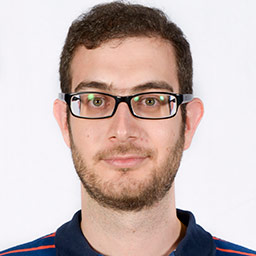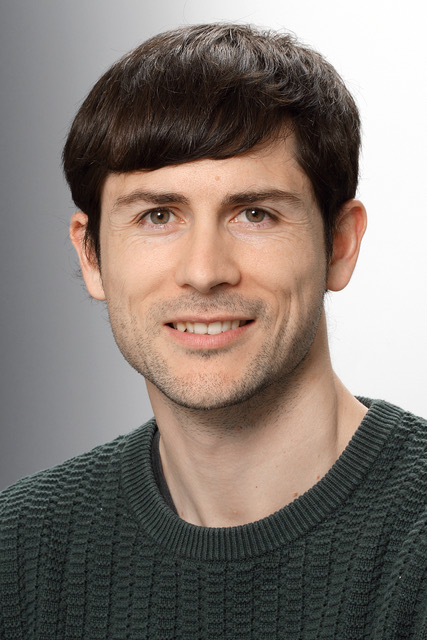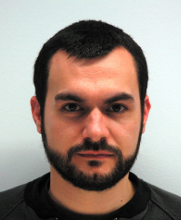Instructors
Wen-mei W. Hwu received the PhD degree in computer science from the University of California, Berkeley, 1987. He is the Walter J. (“Jerry”) Sanders III-Advanced Micro Devices endowed chair of electrical and computer engineering at the University of Illinois at Urbana-Champaign. His research interests include the areas of architecture, implementation, software for high-performance computer systems, and parallel processing. He is a principal investigator (PI) for the petascale Blue Waters system, a codirector of the Intel and Microsoft funded Universal Parallel Computing Research Center (UPCRC), and PI for the world’s first NVIDIA CUDA Center of Excellence. He is the chief scientist of the Illinois Parallel Computing Institute and the director of the IMPACT lab.
For his contributions to the areas of compiler optimization and computer architecture, he received the 1993 Eta Kappa Nu Outstanding Young Electrical Engineer Award, the 1994 University Scholar Award of the University of Illinois, the 1997 Eta Kappa Nu Holmes MacDonald Outstanding Teaching Award, the 1998 ACM SigArch Maurice Wilkes Award, the 1999 ACM Grace Murray Hopper Award, the 2001 Tau Beta Pi Daniel C. Drucker Eminent Faculty Award, the 2006 most influential ISCA paper award, and the University of California, Berkeley distinguished alumni in computer science award. From 1997 to 1999, he was the chairman of the Computer Engineering Program at the University of Illinois. In 2007, he introduced a new engineering course in massively parallel processing with David Kirk of NVIDIA. He is a fellow of IEEE and of the ACM.

Juan Gómez Luna is a senior researcher and lecturer at SAFARI Research Group @ ETH Zürich. He received the BS and MS degrees in Telecommunication Engineering from the University of Sevilla, Spain, in 2001, and the PhD degree in Computer Science from the University of Córdoba, Spain, in 2012. Between 2005 and 2017, he was a faculty member of the University of Córdoba. His research interests focus on GPU and heterogeneous computing, processing-in-memory, memory systems, and hardware and software acceleration of medical imaging and bioinformatics. He is the lead author of PrIM (https://github.com/CMU-SAFARI/prim-benchmarks), the first publicly-available benchmark suite for a real-world processing-in-memory architecture, and Chai (https://github.com/chai-benchmarks/chai), a benchmark suite for heterogeneous systems with CPU/GPU/FPGA.

Izzat El Hajj is an Assistant Professor in the Department of Computer Science at the American University of Beirut. His research interests are in application acceleration and programming support for parallel processors and memory technologies, with a particular interest in GPUs and processing-in-memory. He is a co-author of the textbook Programming Massively Parallel Processors: A Hands-on Approach, 4th edition. He received his M.S. and Ph.D. in Electrical and Computer Engineering at the University of Illinois at Urbana-Champaign, where he worked with the IMPACT Research Group led by Prof. Wen-mei Hwu and received the Dan Vivoli Endowed Fellowship. Prior to that, he received his B.E. in Electrical and Computer Engineering at the American University of Beirut, where he graduated with high distinction and received the Distinguished Graduate Award.

Antonio J. Peña holds a BS + MS degree in Computer Engineering (2006), and MS and PhD degrees in Advanced Computer Systems (2010, 2013), from Jaume I University of Castellón, Spain. He is currently a Leading Researcher at Barcelona Supercomputing Center (BSC), Computer Sciences Department, where he leads the “Accelerators and Communications for HPC” Group. Antonio is a Ramón y Cajal Fellow, former Marie Sklodowska-Curie Fellow, and former Juan de la Cierva Fellow, and a recipient of the 2017 IEEE TCHPC Award for Excellence for Early Career Researchers in High Performance Computing. He is also an ERC Consolidator Laureate and Sr. IEEE/ACM member. Antonio is also Teaching and Research Staff at Universitat Politècnica de Catalunya (UPC). His research interests in the area of runtime systems and programming models for high performance computing include resource heterogeneity and communications.

Leonidas Kosmidis is a Leading Researcher at the Barcelona Supercomputing Center (BSC) and the Universitat Politècnica de Catalunya (UPC). He holds a PhD and a MSc degree in Computer Architecture from UPC and a BSc in Computer Science from the University of Crete, Greece. He is leading the research on embedded GPUs for safety critical systems, both at hardware and system software level within the CAOS (Computer Architecture/Operating Systems) group. He is the PI of several projects funded by the European Space Agency (ESA) such as the GPU4S (GPU for Space) and the Horizon Europe METASAT project, as well as projects funded by industry such as the Airbus Defence and Space which focus on the adoption of GPUs in space and avionics systems. He is also participating in several standardisation efforts regarding GPU programming in safety critical systems. Dr. Kosmidis is the recipient of the RISC-V Educator of the Year Award in 2019 from the RISC-V Foundation and an Honourable Mention for the EuroSyS Roger Needham PhD Award in 2018, which is awarded to the best PhD thesis in Europe.

Vicenç Beltran received his Engineering and PhD degrees in Computer Science in 2004 and 2009, respectively, from the Technical University of Catalonia (UPC). Since 2009, he has been a Senior Researcher at the Barcelona Supercomputing Center (BSC), where he works on parallel and distributed programming models, domain-specific languages, operating systems, and tools for HPC systems. He has been a Work-Package leader in several EU projects such as DEEP, DEEP-ER, DEEP-EST, and INTERTWinE. Moreover, he has also participated in industrial projects with LG, REPSOL, and Huawei. He has over 40 publications in refereed journals and international conference proceedings. He has also participated in many training activities related to the OmpSs-2 task-based programming model. He currently leads the System Tools and Advanced Runtimes (STAR) group that develops the OmpSs-2 programming model.

Xavier Teruel received the Technical Engineering and the Engineering degree in Computer Science at Universitat Politecnica de Catalunya (UPC) in 2003 and 2006, respectively. Since 2006, Xavier is working as a researcher within the group of Parallel Programming Models in the Computer Sciences department at the Barcelona Supercomputing Center (BSC).
His research interests include the areas of operating systems, programming languages, compilers, runtime systems and applications for high-performance architectures and multiprocessor systems, mostly focused in shared memory environments.

Marc Jordà received his M.S. in Computer Architecture, Networks and Systems in 2012 from the Universitat Politècnica de Catalunya, Barcelona. Since then, he has been a research engineer at the Barcelona Supercomputing Center – Centro Nacional de Supercomputación, working in several topics from the field of high-performance computing, including application acceleration with GPUs, GPU hardware simulation, and performance analysis.
